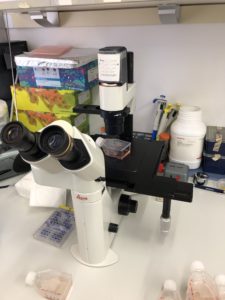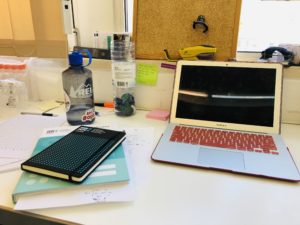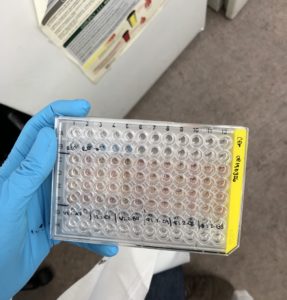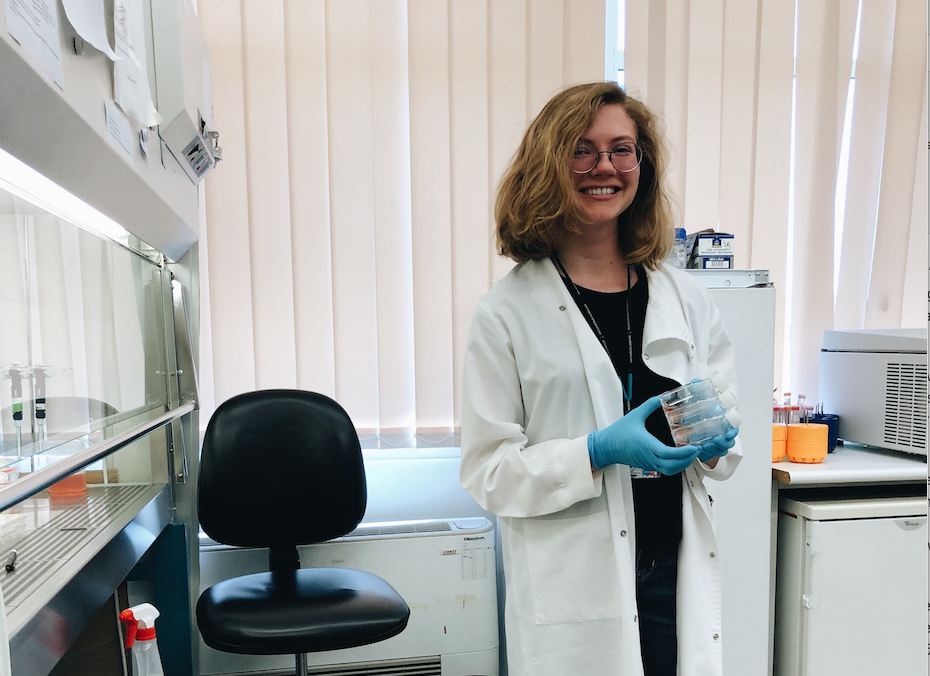The thought of going abroad is scary. Many are nervous to be alone in a country where you don’t know anyone and don’t speak the language. Hannah Taylor, a 3rd year Biology major, knew this feeling, but instead of backing down and settling for a co-op close to campus, she used this fear as justification for why she needed to go abroad for co-op.
 Hannah works for the Instituto de Medicina Molecular, an academic research institute affiliated with the University of Lisbon Medical School in Portugal. This is Hannah’s 2nd co-op. Her first co-op was at Neon Therapeutics where she was a member of the Select Group, focused on developing cancer therapies that targeted common neoantigens.
Hannah works for the Instituto de Medicina Molecular, an academic research institute affiliated with the University of Lisbon Medical School in Portugal. This is Hannah’s 2nd co-op. Her first co-op was at Neon Therapeutics where she was a member of the Select Group, focused on developing cancer therapies that targeted common neoantigens.
The second time around, Hannah developed her own co-op, “I thought the research being done here was really interesting and exciting, and I had a connection to the lab through my last co-op.” A normal day for Hannah includes a lot of benchwork from Western Blots, to ChIP-seq and cell culture experiments. When she is not in the lab, Hannah is usually reading papers that relate to her lab work, or going to seminars from top scientists in Portugal.

Photo courtesy of Hannah Taylor
The lab Hannah works in studies T-cell acute lymphoblastic leukemia (T-ALL), which is an aggressive leukemia that mainly affects children. The cancer is characterized as having too many immature white blood cells in the blood and bone marrow. The prognosis for T-ALL is really good, with up to 95% of children diagnosed surviving 5 years later. However, the treatments are very harsh and can be detrimental to the growth and development of children with the disease. A significant portion of Hannah’s research is related to the IL-7 receptor, “It is found in approximately 10% of disease cases. Targeting IL-7R would hopefully help the 5% of people who don’t respond to other treatment and would help make treatments less harmful to people receiving them.”
Hannah has also been studying a gene related to lymphoblastic leukemia. The role of this gene isn’t well known and finding any information about it is helpful for future treatments. The gene is a transcription factor and when it is expressed, cancer cells are less susceptible to chemotherapy. It’s also part of a number of different signaling pathways and has effects on other genes downstream. The lab is currently investigating what these genes are.

Photo courtesy of Hannah Taylor
Hannah’s first co-op helped her determine what she wanted to do after graduation. “After completing my last co-op I decided that I wanted to get my MD/PhD, instead of just an MD, with the PhD being in immunology. I took my current co-op because it isn’t an immunology co-op and I could learn a lot of new skills. I also wanted to see if I liked molecular biology more than immunology. I still think I’m going to get my PhD in immunology, but coming here made me much more confident in my decision. I’m also happy I get to learn all of the molecular biology techniques that I am and I’m sure I’ll be able to use a lot of them in the future.”
Hannah’s one piece of advice for anyone scared to go abroad? Just do it! It may be scary, and at times it’s hard, but it’s definitely worth it.

